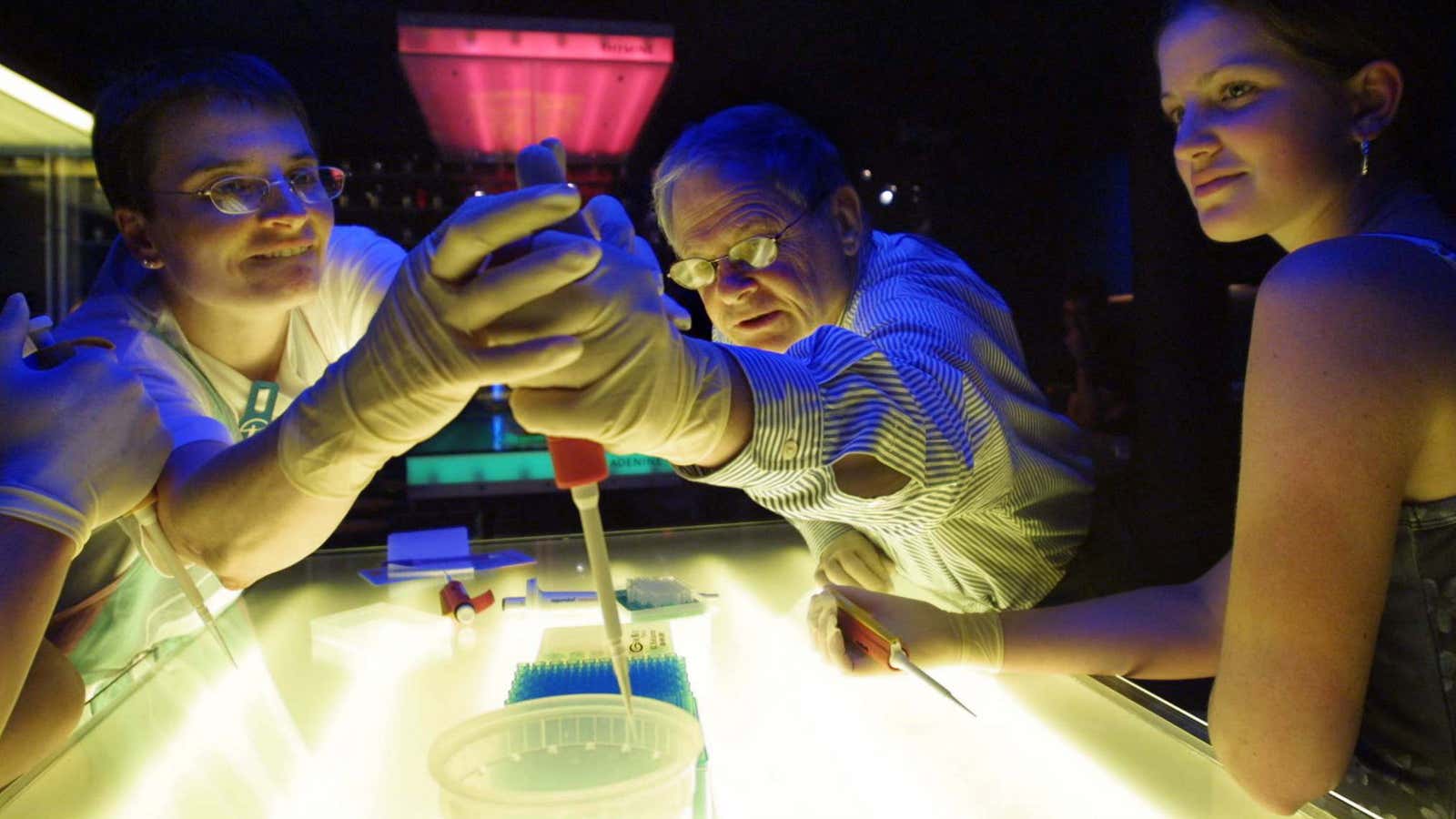A new McKinsey report names genomics—combining and synthesizing the structure of genes, from crops to cancer—as one of 12 disruptive technologies, projecting it could have an economic impact of $700 billion to $1.5 trillion per year by 2025.
Yet great risks loom. Governments have yet to decide who owns genetic material. The US Supreme Court is scheduled this fall to decide whether pharmaceutical companies can patent human cells. Currently, about a quarter of the genes in the human genome are patented. Parents are already using genomics to create “designer babies,” raising concerns about the return of eugenics.
Information, like genes, gives rise to unequal value propositions. Today, Quartz contributor Jaron Lanier argues that free information is costly as it disenfranchises swaths of people who don’t procure and control it but are its core. A similar case can be made for genetic information. Patents mean that testing for the so-called breast cancer gene costs $3,000—excluding women who can’t afford the steep price. What if the balance of power were to shift so that humans charged for their cells, in the same way Lanier argues we should charge for information? McKinsey’s take:
Synthetic biology is still in a very early stage of development, but could become a source of growth. If the process can be perfected, modifying organisms could become as simple as writing computer code.
Never before has playing god been so easy. Or potentially profitable.
The notion that living organisms are simply code to be hacked raises philosophical questions beyond health and safety. While governments ponder how and when companies can profit from our essential building blocks, humans should consider the commoditization of their cells. Already governments ban the outright sale of human body parts, so egg donors receive financial compensation for their “time and inconvenience” rather than their eggs.
There is international consensus that bodies are not property, and thus, you do not have full ownership over your body. But 150 years after the Emancipation Proclamation was signed, we’re faced with a debate about whether our essential makeup is the property of others.




